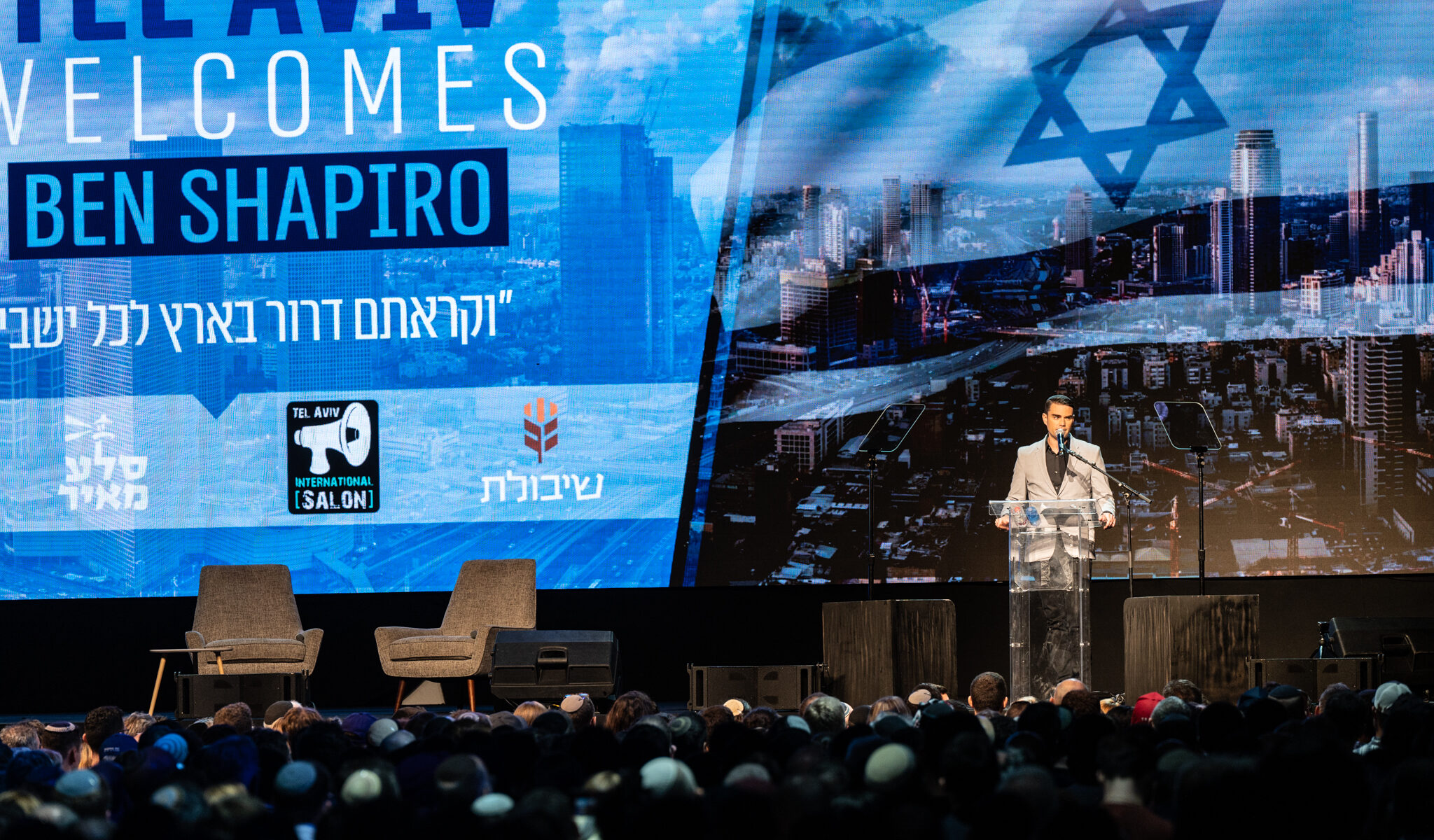American conservative pundit Ben Shapiro, former Israeli hostage Emily Damari and NBA player Deni Avdija have all been invited to light torches at Israel’s Independence Day ceremony.
Shapiro, who has shown staunch support for Israel and its government to his millions of followers on X and YouTube, was chosen by Israeli Transport Minister Miri Regev following the recommendations of a public advisory committee.
“Ben Shapiro is one of Israel’s greatest supporters in the world,” Regev said in a statement. “Throughout his media career – and especially since the start of the war – he has demonstrated unwavering support for Israel, its right to self-defense, and the justice of its cause.”
The ceremony is a centerpiece of Israel’s observance of Independence Day, or Yom Haatzmaut, and being chosen to bear a torch is considered an elite honor. A Diaspora Jew was included in the ceremony for the first time in 2017.
Shapiro, the Orthodox Jewish founder of the conservative outlet The Daily Wire, was warmly received during his first speech in Israel in 2022, when he warned against importing “woke culture” to a packed crowd in Tel Aviv.
But while he has his fans in Israel, his hard-line stances against abortion rights and past homophobic statements, which include calling homosexuality and transgender identity a mental illness, have caused some in Israel to decry his inclusion in the ceremony.
“You can’t whitewash misogyny and LGBTQ hatred just because the person who expressed it supports Israel,” the Israeli LGBTQ advocacy organization Aguda said in a post on X. “This choice erases us, and it shames the ceremony, the country, and the values around which we are all supposed to unite.”
The Israel Women’s Network also condemned the appointment in a post on X, writing, “Ben Shapiro, the man who claims that women who have abortions are ‘baby killers,’ should not be lighting a torch on Independence Day. It’s not an honor, it’s an insult to women in Israel.”
And Gilad Kariv, a Reform rabbi and member of Knesset, denounced Regev’s choice, saying on X that there were many better choices to represent the Diaspora than “a controversial, polarizing and divisive figure who has come out against the gay community, against the State of Israel’s investment in liberal communities in the Jewish world, against women’s right to their own bodies, and against every American Jew who supported the Democratic Party (3/4 of American Jewry).”
The theme of Israel’s 77th Independence Day is “Bridges of Hope” and comes a year after a somber ceremony that included only survivors and first responders from Hamas’ Oct. 7, 2023, attack on the country. The ceremony was prerecorded to head off possible protests against the government over its failure to secure a deal to return the remaining hostages in Gaza.
Some of the hostages who have since been freed were selected for this year’s ceremony. Damari and Eli Sharabi, who were released from captivity earlier this year during a two-month ceasefire, will also light torches, Regev announced.
Damari, whose injured hand, which resembles a “rock on” emoji and “I love you” in American sign language, became an instant symbol of the movement to free the remaining hostages when she was rescued in January.
Avdija, whose success in the NBA has made him a point of pride for Israelis at home and abroad, was chosen because of the example he is setting for Israelis, Regev said.
Other torch-bearers announced so far are less famous but represent Israeli society and those who have contributed to it, including IDF officers, a 90-year-old woman who has knit clothing for soldiers, and the relatives of soldiers killed in Gaza. The list also includes Rachel Edri, who gained fame for surviving Oct. 7 after offering cookies to her Hamas captors.
At least one person has declined to light a torch, citing Israel’s current political situation, with the government enmeshed in scandal and 59 hostages remaining in Gaza.
“The torch-lighting ceremony is a state ceremony but this period is not statesmanlike,” Yarden Arazi, an Israeli singer, wrote on Instagram to explain why she was turning down an honor she had initially been excited to receive. “I am hurting and hope for better, more unified days when statesmanship will once again be a leading value in Israeli public life.”
JTA has documented Jewish history in real-time for over a century. Keep our journalism strong by joining us in supporting independent, award-winning reporting.





